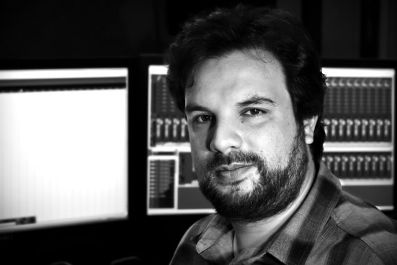
|
«I’m glad my influences and my inspiration comes from music written 300 years ago» I found Dave in Twitter. He acknowledge of some twitt of mine I published a time ago saying how much I liked his music, as any good fan of both the show scores would do, of course. And so we started to twitt each other. He just joined in Twitter, he told me. That was why he had so few followers (we can fix that now). Nice and casual, Dave had no qualms in talking to me and answering my questions so that we could know better about such recently iconic aspect in The Good Wife and feel a little bit closer to a show some of us are so fond of. He’s just starting to make noise, he’s discrete by now, but he counts with all the ingredients to make a name of his own, especially now that we can put him on the map. There’s no doubt he’s shown he can be very good when given the chance. -Ice-breaker and a very cliché question. How did you start your music career and how did you end up writing music for visual media (movies, videogames, TV shows)? -You’ve been a fundamental part in several movies’ Music Department, especially side by side with Harry Gregson-Williams, but that’s not a job people are used to know so well. Would it be possible to explain what do you do exactly in this area? How is it to work with Harry Gregson-Williams? First and foremost Harry has become a great friend and is a mentor of mine. Even though I only worked for him officially for a year or so, we stay in touch and he still helps me with career decisions. It was great to team up with him on The Town and co-write the score together. My initial task with Harry when I came over in 2006 was to provide additional music, rather like Harry did for Hans way back when. I have also helped Danny Elfman out in this field, and Harry’s brother Rupert. -Which differences do you find between writing music for movies, videogames and TV shows? Which do you prefer better to work for? -When it comes to writing the music, which elements do you get inspiration in? Colours, images, ideas, characters, dialogues, the script itself…? When I start a project I try and watch the picture as many times as possible. Whether it’s a screen capture from a video game, an early edit of a movie, or an episode of a TV show, I try and learn the picture, and try and absorb what the creators of these things have been working with. I look at the way it’s shot, the color, the use of dialogue and sound effects and try and figure out how music can play a role. -The Good Wife may be without a doubt your most renowned work. At least we could say you’re a little bit more under the spotlight now due to your music for the show. How did you get to be the composer for The Good Wife? -Now a tricky one about The Good Wife. Your music’s been there the whole time but it wasn’t until season 4 and clearly in season 5 that we have noticed there’s a great composer with his own name behind the best episodes of the show. The showrunners write these great lines, but it’s clear your music makes a difference now, especially since “Hitting the Fan” hit us all in the face. When and why did you choose to give your music this turnaround towards something so unique and distinctive? I mean, there are no apparent leitmotivs in your score for The Good Wife, as usually expected from a score, but your work is no longer just some functional music to reinforce the drama. As viewers, we’re now able to identify an intention and relate your music with the show, and that’s quite an achievement. -“Hitting the Fan”, “Plaintiff’s Partita”, “J’accuse”, “Waiting Room Rondo”, “Felon’s Fugue”… These tracks –all part of “The Good Wife (The Official TV Score)”, the only compilation with your music for the show– are a few examples of the very Baroque, Classical, Renaissance style in your music for The Good Wife. You’re using mandolins, classical guitars, clavichords… Even the titles make reference to the kind of piece we are about to listen (fugue, rondo…). Why did you choose this specific type of music for what we can -poorly- call a TV show about lawyers? Are there any previous references you tend to go back to? -I don’t know if you follow any usual process when writing the music for an episode of The Good Wife. Do you wait for the final script or do you have an idea of what you want to tell before reading it? How is your relationship with the showrunners and writers in this aspect? -Do you intend to keep going deeper into the concept of the music as the writers go deeper into the characters and their plotlines or is it a harder thing to do in a TV show where being on time is everything? -The epic and the action in Call of Duty: Ghosts, the classical and minimalist style in The Good Wife. As a composer, you probably move constantly from one genre to another. Which one do you feel more comfortable working with? -Let’s talk about scoring in general. It’s obvious music plays a very important role within the narrative of a film, videogame or TV show. From your experience as a composer, how important do you think music is to these stories? -I always find it curious to know what kind of music you usually listen to. Any favourite rock bands? Which score composer would you reckon is the most iconic nowadays as part of a new generation of film composers? I listen to a lot of 16th Century polyphonic choral music. It calms me down and soothes my soul! But I have quite eclectic tastes ranging from Jazz to contemporary classical to old-school hip-hop. There’s so much good music out there I just wish I had more time to hear more. As for an iconic film composer of the new generation, you would have to define ‘new’ and ‘iconic’. I think Hans Zimmer might fit this description if he is deemed new generation. I always think there is something iconic in his scores – some idea which feels unique. I’m also growing fond of Desplat – his score to The Imitation Game is hard to get out of my head. John Powell’s How to Train Your Dragon is about as good as you will find for an animation score. And I continue to learn from my mentor, Harry. -Could you tell us any details about Batman: Arkham Knight? Any new projects in mind that you can talk about? |
Author BIO: Born in the United Kingdom and now living in LA, Dave Buckley’s first involvement with film music was as a choirboy performing performing on Peter Gabriel’s score for Martin Scorsese’s The Last Temptation of Christ. He continued his musical education at Cambridge University where he subsequently taught. After graduating, he moved to London and began a successful career writing music for TV shows and commercials. In 2006 David moved to LA to become an additional writer on a number of Harry Gregson-Williams’ scores including Shrek, Gone Baby Gone, Flushed Away, Arthur Christmas, Prince of Persia and The Number 23. He has also contributed music to the video game, Metal Gear Solid 4, and the TV show, Shrek the Halls. In addition to his work for Harry, he has written additional music for Danny Elfman on films including American Hustle and Big Eyes and Hans Zimmer & Rupert Gregson-Williams on Winter’s Tale. David was recently honored as a ‘Brit to Watch’ by BAFTA and has been the recipient of numerous BMI Awards. 
David Buckley’s Webpage: |


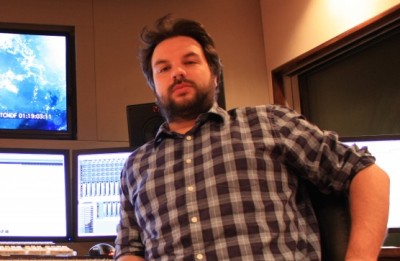 If you name David Buckley, you might find it hard to identifiy at first. If you ask any fan of The Good Wife about the classical music you can recently hear in the show, the name begins to sound more familiar. The truth is that, at least from my experience, one has to be very into the essence of The Good Wife to really see what this young composer has meant to one of the greatest shows you can watch on a network TV nowadays. A show that exceeds our expectations with every season. When you dig a bit deeper into Buckley’s past you can understand the reasons behind this choice of using a disctintive and unique musical style in episodes as memorable as «Hitting the Fan». That was a revolution for all of us -a revolution I dare say Buckley’s music had quite a lot to do.
If you name David Buckley, you might find it hard to identifiy at first. If you ask any fan of The Good Wife about the classical music you can recently hear in the show, the name begins to sound more familiar. The truth is that, at least from my experience, one has to be very into the essence of The Good Wife to really see what this young composer has meant to one of the greatest shows you can watch on a network TV nowadays. A show that exceeds our expectations with every season. When you dig a bit deeper into Buckley’s past you can understand the reasons behind this choice of using a disctintive and unique musical style in episodes as memorable as «Hitting the Fan». That was a revolution for all of us -a revolution I dare say Buckley’s music had quite a lot to do.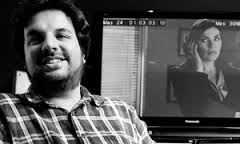
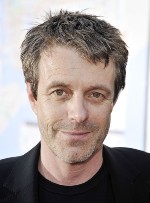 I started my musical life as a chorister at Wells Cathedral in the UK. While there I had the good fortune to sing on a piece called The Plague & The Moonflower written by Richard Harvey, who is now a good friend of mine. Harry Gregson-Williams was working for him at the time (back in the 80’s) and I made Harry’s acquaintance, and some decades later all this led to me coming over to LA to help Harry out on a few films.
I started my musical life as a chorister at Wells Cathedral in the UK. While there I had the good fortune to sing on a piece called The Plague & The Moonflower written by Richard Harvey, who is now a good friend of mine. Harry Gregson-Williams was working for him at the time (back in the 80’s) and I made Harry’s acquaintance, and some decades later all this led to me coming over to LA to help Harry out on a few films.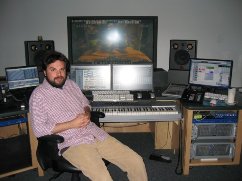 I think a different approach is required for TV, film and video games. I can’t really say which I prefer as they all interest me. TV requires you to be very quick and think on your feet – there is little time to go wrong so you have to trust your instincts. There tends to be more time with film and game work, but they too present challenges. For example, with video games, the story is non-linear and much depends on the ability of the player. Having said which, I think whatever one is working on it’s important to try and convey your sound and voice.
I think a different approach is required for TV, film and video games. I can’t really say which I prefer as they all interest me. TV requires you to be very quick and think on your feet – there is little time to go wrong so you have to trust your instincts. There tends to be more time with film and game work, but they too present challenges. For example, with video games, the story is non-linear and much depends on the ability of the player. Having said which, I think whatever one is working on it’s important to try and convey your sound and voice.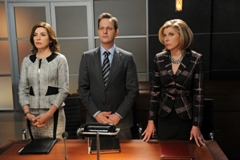 I had worked on some small Scott Free productions (who co-produce the show) and was known to both Ridley and Tony. Harry made an introduction and David Zucker (the head of TV at Scott Free) expressed an interest in meeting me. I did some demos, and they liked what they heard so they took me on board with episode 10 of season 1.
I had worked on some small Scott Free productions (who co-produce the show) and was known to both Ridley and Tony. Harry made an introduction and David Zucker (the head of TV at Scott Free) expressed an interest in meeting me. I did some demos, and they liked what they heard so they took me on board with episode 10 of season 1. 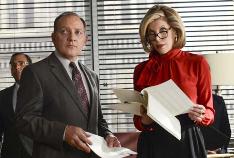 As I took the show on from another composer my initial task was to elegantly segue from the music of the first 10 episodes into something new. I think by the end of season 1 you have something that sounds a little more like me. But then I largely agree with you. The music for much of the first 4 seasons was fine but nothing remarkable. It did its job but little more. I was curious what would happen when we got to season 5, both in terms of how the show could continue with interesting plots and how I could carry on being relevant. Robert King (the show-runner) had flirted with classical music with regards to source cues, and he also temped in a classical piece for episode 501. My job was to trump it. It would seem that I succeeded and the show became this whole new thing. I love scoring each episode and am very grateful to the creators of the show for allowing me to score a network show in a very different way. As for the lack of leitmotivs, I dug myself into a hole on this issue in an interview in Variety a while back. While it is true there are no obvious melodic themes, there are and always have been musical motifs throughout the scores. The Good Wife is classy enough television that it does not require some blatant tune every time Alicia comes on screen – what possible use would that serve? But I do think the show, certainly since season 5 has a language that is unmistakably The Good Wife.
As I took the show on from another composer my initial task was to elegantly segue from the music of the first 10 episodes into something new. I think by the end of season 1 you have something that sounds a little more like me. But then I largely agree with you. The music for much of the first 4 seasons was fine but nothing remarkable. It did its job but little more. I was curious what would happen when we got to season 5, both in terms of how the show could continue with interesting plots and how I could carry on being relevant. Robert King (the show-runner) had flirted with classical music with regards to source cues, and he also temped in a classical piece for episode 501. My job was to trump it. It would seem that I succeeded and the show became this whole new thing. I love scoring each episode and am very grateful to the creators of the show for allowing me to score a network show in a very different way. As for the lack of leitmotivs, I dug myself into a hole on this issue in an interview in Variety a while back. While it is true there are no obvious melodic themes, there are and always have been musical motifs throughout the scores. The Good Wife is classy enough television that it does not require some blatant tune every time Alicia comes on screen – what possible use would that serve? But I do think the show, certainly since season 5 has a language that is unmistakably The Good Wife.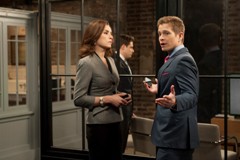 It’s just fun, isn’t it!? I mean, when I flick through the channels I hear so much music that is just a rip-off of Hans Zimmer or Thomas Newman, I’m glad my influences and my inspiration comes from music written 300 years ago. At Cambridge University I learned how to write a fugue and I thought at the time that it was an utter waste of time. Little did I know I’d find myself in LA some 15 years later writing a 4-part figure to accompany removal of furniture in a legal office in Chicago! Robert King’s words to me after the success of the music in 501 were ‘let’s do what we want to do – let’s confound everyone’s expectations. What’s the worst that can happen’? What an amazing thing for a composer to hear 100 episodes into a show. If I were lazy I’d be pissed off as I could have had an easy ride, but this is all so much fun.
It’s just fun, isn’t it!? I mean, when I flick through the channels I hear so much music that is just a rip-off of Hans Zimmer or Thomas Newman, I’m glad my influences and my inspiration comes from music written 300 years ago. At Cambridge University I learned how to write a fugue and I thought at the time that it was an utter waste of time. Little did I know I’d find myself in LA some 15 years later writing a 4-part figure to accompany removal of furniture in a legal office in Chicago! Robert King’s words to me after the success of the music in 501 were ‘let’s do what we want to do – let’s confound everyone’s expectations. What’s the worst that can happen’? What an amazing thing for a composer to hear 100 episodes into a show. If I were lazy I’d be pissed off as I could have had an easy ride, but this is all so much fun.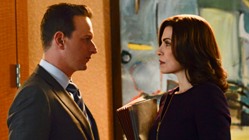 I tend not to read the scripts for this show. I watch the episode with the editor and a few producers one week before it is broadcast and then hurry back to my studio to write. The show is temped with my music from previous episodes. Sometime this temp is informative and sometimes it requires a completely different approach. I send my demos to Robert King as I write and he gives me notes. I finalize the tracks and record whatever is going to be live and then send them off to be mixed. Then repeat 21 times!
I tend not to read the scripts for this show. I watch the episode with the editor and a few producers one week before it is broadcast and then hurry back to my studio to write. The show is temped with my music from previous episodes. Sometime this temp is informative and sometimes it requires a completely different approach. I send my demos to Robert King as I write and he gives me notes. I finalize the tracks and record whatever is going to be live and then send them off to be mixed. Then repeat 21 times!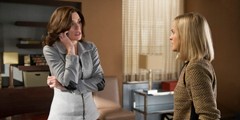 I think the music is still evolving for this show. In Season 6 I’ve started to add more percussive elements to the ‘classical’ sound world. I dare say with the remaining 10 episodes things will shift further and who knows where I will go if we have a season 7!
I think the music is still evolving for this show. In Season 6 I’ve started to add more percussive elements to the ‘classical’ sound world. I dare say with the remaining 10 episodes things will shift further and who knows where I will go if we have a season 7!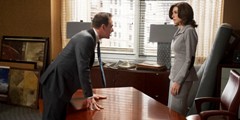 At this stage of the game, I am only going to be able to survive out here by being versatile. I am fortunate that I can move from one genre to another and do an ok job. What has been interesting with TGW is that I have had nice and generous comments about the originality of the musical concept since season 5. Don’t get me wrong, the influences are there: Vivaldi, Purcell, Corelli, Bach, Händel, Debussy, Schubert, Praetorious – but what I believe may be unique is that all these sounds that I have heard and performed since the age of 9 are jumbled up inside me and have formed something somewhat unique for a network TV show. At least the approach is unique if nothing else.
At this stage of the game, I am only going to be able to survive out here by being versatile. I am fortunate that I can move from one genre to another and do an ok job. What has been interesting with TGW is that I have had nice and generous comments about the originality of the musical concept since season 5. Don’t get me wrong, the influences are there: Vivaldi, Purcell, Corelli, Bach, Händel, Debussy, Schubert, Praetorious – but what I believe may be unique is that all these sounds that I have heard and performed since the age of 9 are jumbled up inside me and have formed something somewhat unique for a network TV show. At least the approach is unique if nothing else.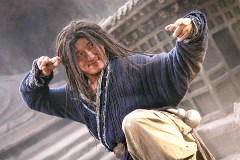 Very, very important. But it also has to be sympathetic to everything else around it. My first solo feature film was The Forbidden Kingdom. It was a naive score in many ways, but what I was asked to do, and I believe I achieved it to some degree, was to add a sense of fantasy and adventure. Compare that to a score I did for a film called Gone. No critic or reviewer had much good to say about either the film or the score, but my task here was to stay out of the way, to just give a very discreet ambient sound that kept you on edge.
Very, very important. But it also has to be sympathetic to everything else around it. My first solo feature film was The Forbidden Kingdom. It was a naive score in many ways, but what I was asked to do, and I believe I achieved it to some degree, was to add a sense of fantasy and adventure. Compare that to a score I did for a film called Gone. No critic or reviewer had much good to say about either the film or the score, but my task here was to stay out of the way, to just give a very discreet ambient sound that kept you on edge. 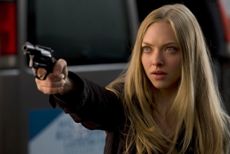 Was the score to Gone great music? Absolutely not. Did it serve the film? Well, the film makers and I thought so. And such is the broad nature of this industry. We need scores that are subtle but effective and we need scores that are big and bold. Where one goes depends on the project and I feel fortunate that I have been able to maneuver in a wide range of genres.
Was the score to Gone great music? Absolutely not. Did it serve the film? Well, the film makers and I thought so. And such is the broad nature of this industry. We need scores that are subtle but effective and we need scores that are big and bold. Where one goes depends on the project and I feel fortunate that I have been able to maneuver in a wide range of genres.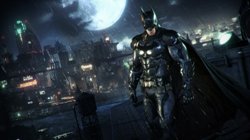 Nick Arundel, who composed the previous games in this series, asked me to co-write this with him. It was a great opportunity for me as it was the first score I had my name on which was recorded in AIR studios with mind-blowing musicians. I see this project very much as Nick’s baby with me offering a helping hand. The themes and the language had been setup by Nick in the earlier games. However I’d say this score is darker and more dangerous than previous incarnations. As for other projects I am about to start a fairly big film but I’ll keep details of that under my hat as it’s early days and I don’t want to jinx anything! I did a little British Indi film in the summer with Kelsey Grammer. It was an old-fahsioned orchestral type of score with not a synth in sight – quire refreshing. I’ve also just helped Danny Elfman out on 50 Shades of Grey (as I also did on American Hustle and Big Eyes), so you’ll be hearing a cue or two of mine there.
Nick Arundel, who composed the previous games in this series, asked me to co-write this with him. It was a great opportunity for me as it was the first score I had my name on which was recorded in AIR studios with mind-blowing musicians. I see this project very much as Nick’s baby with me offering a helping hand. The themes and the language had been setup by Nick in the earlier games. However I’d say this score is darker and more dangerous than previous incarnations. As for other projects I am about to start a fairly big film but I’ll keep details of that under my hat as it’s early days and I don’t want to jinx anything! I did a little British Indi film in the summer with Kelsey Grammer. It was an old-fahsioned orchestral type of score with not a synth in sight – quire refreshing. I’ve also just helped Danny Elfman out on 50 Shades of Grey (as I also did on American Hustle and Big Eyes), so you’ll be hearing a cue or two of mine there.
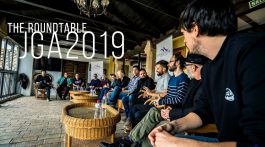
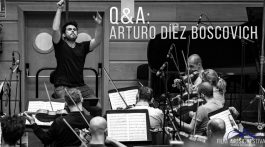
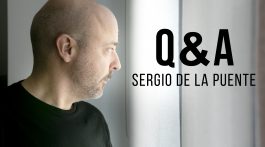
No hay comentarios